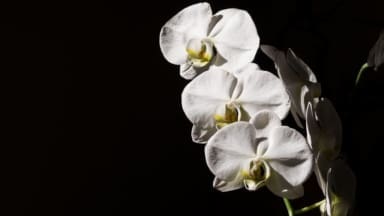
According to the Royal Horticultural Society (RHS) Advisory team, they receive the highest number of enquiries from members regarding houseplant symptoms in January -85% more than the preceding two months – when often it is too late for a plant to be saved. RHS Plants also sees one of three peaks in plant purchases at the start of the year when people have potentially resolved to start afresh. Another is in the run up to Christmas when the gifting of plants is popular, with favourites including poinsettia, azaleas, Christmas cacti and cyclamen.
The charity states that a combination of lower light levels, fluctuating temperatures from central heating and reduced humidity can stress plants, resulting in yellowing of leaves, bud drop, scorching and shrunken compost, and potentially, the eventual loss of the plant. Identifying issues now and making small changes to houseplants’ positioning and care can ensure plants survive, says the RHS. To assist, the RHS has provided an extensive guide to houseplant care.
Chris Taylor, RHS Horticultural Advisor said: “When it comes to houseplants, be guided by the weight of the pot when watering and use your finger to gauge how moist the potting compost feels. The aim is to keep plants moist but never soggy. If plants do become soggy they can sometimes be saved by tipping out of the pot and drying the roots with some kitchen towel before repotting.”
Guy Barter, Chief Horticulturist, said: “Houseplants are increasingly popular, particularly with people starting out on their gardening journey or for whom outside space is at a premium and with so much time spent indoors in winter many rely on them to provide some welcome greenery and the resulting mood boost. In May, houseplant advice sought by members centres around what to grow and where, in August, when temperatures peak, it turns to care and maintenance, while in January it tends to be how to remedy plants that have wilted, turned brown or are otherwise looking suspect. Getting in early and diagnosing problems in November is important in giving them the best chance of entering the new year in peak health as there’s still some way to go before spring.”
If despite best efforts, houseplants do succumb, or for those keen to buy plants (as gifts) for the winter months, the RHS recommend plants such as moth orchids, which are happy in warmer rooms, ZZ plant (Zamioculcas zamiifolia) and spider plant (Chlorophytum comosum) both of which are resistant to forgetful watering and low light levels, as well as rabbit’s foot fern (Davallia solida var. fejeensis) which unlike most ferns can tolerate some dryness, and is easy to water the spreading surface rhizomes that soak up water when misted.
The RHS will be celebrating houseplants in January at RHS Garden Rosemoor in Devon (25th-26th January) and RHS Garden Bridgewater in Salford (31st-2nd Feb) offering advice, workshops, demonstrations and plants for purchase.

